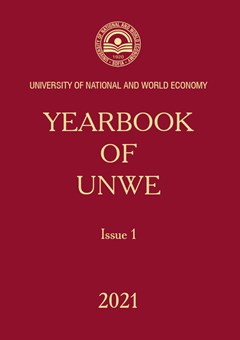Analyzing the Factors Which Influence the Effectiveness of Railway Passenger Transport
Author: Borislav Arnaudov
Abstract
Railway transport makes significant contributions to the economy of every country. Approximately 30 000 people are directly employed in this sector in Bulgaria, and the added value to the GDP amounts to approximately 2% (NSI, 2019а). Railway transport is crucial for a more sustainable transport sector, stable economic development, as well as social cohesion and connectivity of citizens. The article presents a study of the technical and operational factors for the work of railway transport as well as energy consumption during freights. The goal is to outline the way these indicators affect the stable development of railway transport and what their actual influence is in regard to carrying out railway passenger transport. The speed and energy efficiency of railway passenger transport have been analysed, as they will serve as the foundation for specific suggestions on how to carry out passenger transport in Bulgaria more effectively.
JEL: R42, Q49

